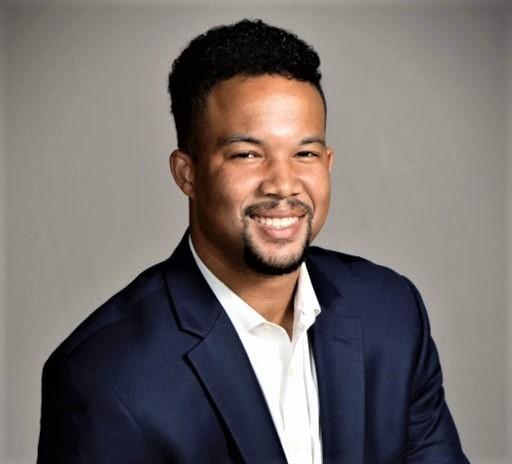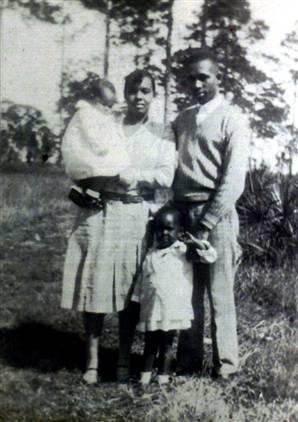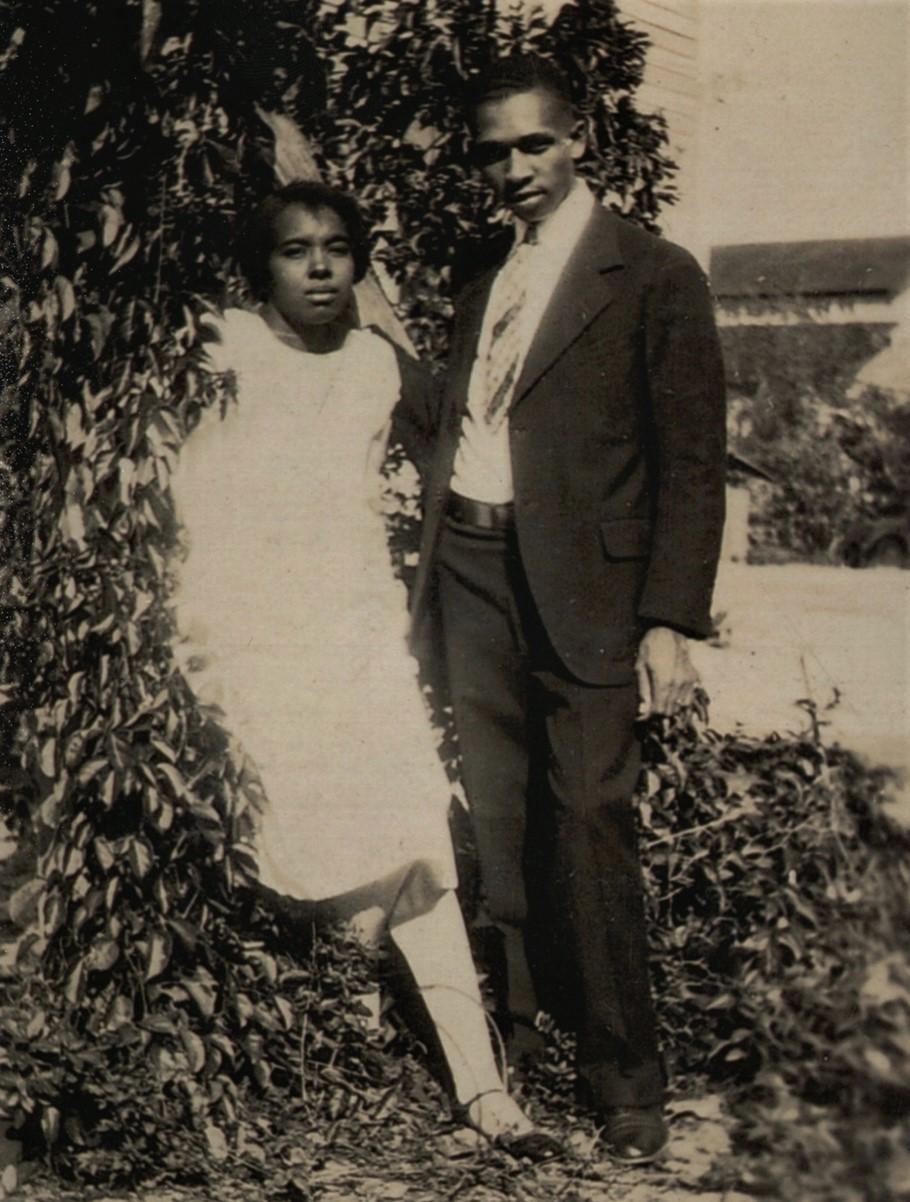The Road to Freedom Avenue - The Family

A current photo of Darren Pagan, the great grandson of Harry T. and Harriette V. Moore.
Photo provided with permission of Darren Pagan.
Photo provided with permission of Darren Pagan.
Blood, sacrifice, and lineage
By jessica less and Okelo Pena
As racial disparities continue to divide the U.S today, Darren Pagan continues his great grandparents’ legacy by advocating for the rights of Black lives.
Pagan, 28, lives in Arlington, Virginia, and is the great-grandson of Harry T. and Harriette V. Moore, America’s first civil rights martyrs.
Growing up, Pagan’s main focus was playing basketball with his friends and being the group’s jokester. One day, his grandmother sat him down and casually mentioned they were going to watch a documentary together along with his father. He had no idea the information in the documentary would change the course of his life forever. This would be the moment he learned about his great grandparents.
“We watched this very gruesome documentary, and obviously I was ill-prepared for that,’’ Pagan said. “I wasn’t aware of my family history until then, didn’t really know how to react at the time, but it really helped my grandmother and I get closer, who was obviously their daughter.’’
Pagan is the grandson of Evangeline Moore, one of two of the Moores’ children. Evangeline’s older sister, Annie Rosalea Moore, nicknamed “Peaches,” was in the house the night it was bombed on Dec. 24, 1951, but was not injured. She would die at age 44 in 1974. Evangeline, who was on her way to her parents’ home in Florida to celebrate the holidays in 1951, was not in the house the night of the bombing. She would go on to take up her parents’ cause and become a civil rights activist. Evangeline Moore died at 85 in 2015.
Pagan said his grandmother taught him all about his great-grandparents. He learned that they were intellectual educators who were consistently passionate, polite, and polished. Harry Moore, known for his signature combination of a suit and wristwatch, was the more talkative of the couple. Harriette was the sterner parent and ran the household, always making sure everything was in tip-top shape, Pagan said.
“I would describe them as two eloquent people that were devoted to providing better lives for those around them. Whether that was through academics, voter registration, his work with the NAACP, or equal pay for teachers,” Pagan said.
Despite the contributions they made to their community, living an everyday life wasn’t an option for them due to their passion for speaking up against racial injustice in a time where many others were silent.
“They didn’t have the upbringing that most did. There was very little, if any playing outside, going to spend time with friends. Isolated given his background and involvement,” Pagan said. “It’s kind of tough to take all those things on in one point and think that you will live your life, according to your terms. I think that as a family, that was a sacrifice Harry and Harriette were willing to make.”

Harriette V. Moore and Harry T. Moore with their two children, daughters Evangeline Moore, held, and her older sister, Annie Rosalea Moore, nicknamed “Peaches,” standing. Annie was in the house the night it was bombed on Dec. 24, 1951, but was not injured. Photo credit Dave Rich of nbbd.com.

Harry and Harriette Moore dressed in their usual proper attire.
Photo provided with the permission of Darren Pagan.
But above the heroic activism, their greatest treasure was their two daughters, Pagan said. At the time of the bombing, his grandmother, Evangeline, had gone north to try to recruit civil rights workers to come south.
“Where the bomb went off, if she were home, she would not have survived, Pagan said. “Ugh, she amazes me in that she went through so much.”
At their parents’ funeral, the two girls made a pact that they would never cry. Evangeline was always very composed and soft-spoken. Each time a new criminal investigation was opened up to identify and pursue her parents’ killers, Evangeline would get emotionally exhausted, Pagan said, because her hopes were raised only to be dashed as each investigation proved inconclusive. Even during these times, Evangeline remained composed and never cried, Pagan said.
“I remember thinking after I watched the documentary that if a group could do something like this to my family, this is not a group I want to embrace, although I was quickly corrected by my grandmother,” he said. “I was made to understand that this was an unfortunate situation by a group of people, but that’s not who we are as a family.
In the last five years of his grandmother’s life, Pagan traveled with her to see her speak at events. He described how he would watch her prepare drafts of her speech, meticulously editing them to perfection. Watching her become tense and relive her past emotions allowed him to understand what she went through and the level of significance his family held. He was inspired by his grandmother and began give speeches at various events.
“Truthfully, it scared me at first because I always thought the transition would happen between my grandmother and then my father and then me. So, I thought I had a little bit more time, and that’s not exactly what happened,” Pagan said.
“The way she prepared it wasn’t like an exchange we ever had. But it was something that I was always super grateful for. It changed the way I view life.”
Evangeline Moore taught Pagan to embrace people who have an interest in the story. Pagan is currently creating a scholarship fund to honor the legacy of his great grandparents. He carries on his family’s legacy by raising awareness about their history and illuminating his ancestors’ contributions whenever he gets the chance to talk about them.
“Considering the times we are in, whether it’s police brutality or other opportunities that minorities don’t have, unfortunately, I feel it’s still very pressing and to not talk about it would be a significant disservice,” he said.